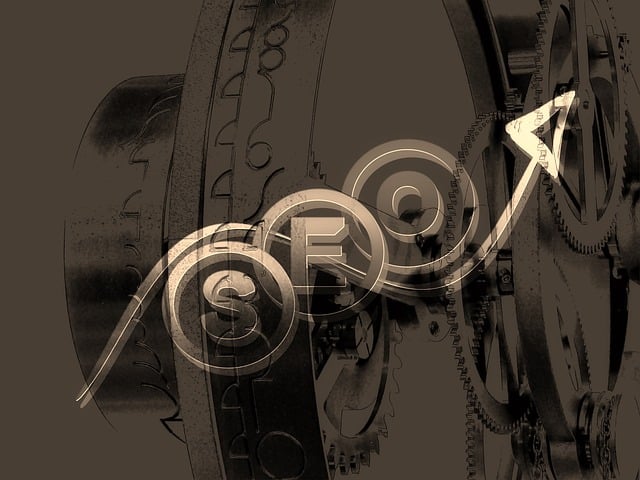E-commerce SEO is crucial for online businesses aiming to boost visibility and drive organic traffic in a competitive digital marketplace. Specialized SEO agencies optimize product pages, enhance website speed & mobile usability, create high-quality content, conduct keyword research, and employ strategic meta tag optimization and link building. A successful e-commerce SEO strategy includes understanding customer behavior, thorough keyword research using tools like Google Keyword Planner or Ahrefs, and creating compelling product descriptions. Engaging a reputable SEO agency can significantly drive organic traffic and boost sales conversions by enhancing visibility, click-through rates, and user experience.
In today’s digital era, e-commerce businesses need a robust SEO strategy to thrive. This comprehensive guide explores essential aspects of E-commerce SEO solutions, from understanding the basics to leveraging technical optimizations and enhancing user experiences. We delve into keyword research, product page optimization, local SEO for targeted customers, and measuring success. By implementing these strategies, an SEO agency can significantly boost online visibility and drive sales for e-commerce websites.
Understanding E-commerce SEO: The Basics

E-commerce SEO, or Search Engine Optimization, is a crucial strategy for online businesses to increase visibility and drive organic traffic. It involves optimizing websites to rank higher in search engine results pages (SERPs), ultimately attracting more potential customers. For e-commerce platforms, where competition is fierce, implementing effective SEO tactics can be the difference between success and failure. A dedicated SEO agency specializing in e-commerce websites plays a vital role in navigating this complex landscape.
These agencies possess the expertise to understand the unique challenges faced by online retailers. They focus on optimizing product pages, improving website speed, enhancing mobile usability, and creating high-quality content—all essential elements for search engines to crawl and index effectively. By employing strategic keyword research, meta tag optimization, and link building techniques, an SEO agency can ensure that e-commerce websites stand out in a crowded digital marketplace, thereby increasing sales and market share.
Key Factors for a Successful E-commerce SEO Strategy

A successful e-commerce SEO strategy is a multifaceted approach that requires careful consideration of various factors. When it comes to optimizing your online store for search engines, understanding your target audience and their buying behavior is crucial. Conducting thorough keyword research to identify high-value terms that potential customers use when searching for products or services relevant to your niche is essential. This involves utilizing tools like Google Keyword Planner, SEMrush, or Ahrefs to uncover long-tail keywords with lower competition but significant search volume.
Additionally, building a robust e-commerce SEO strategy entails creating compelling and informative product descriptions that not only satisfy customer intent but also incorporate targeted keywords naturally. Optimizing product titles, URLs, and meta tags for each page ensures that your website is easily crawlable and indexable by search engines. An effective strategy also includes implementing internal linking structures to enhance the overall user experience while signaling to search algorithms which pages are most important on your site. Engaging in regular content updates and integrating schema markup further improves visibility and click-through rates, ultimately driving more organic traffic to your e-commerce website via a reputable SEO agency for e-commerce websites.
Role of Keyword Research in E-commerce SEO

Keyword research is a cornerstone of successful e-commerce SEO strategies, and it’s an area where many businesses cut corners or underestimate its importance. A top-tier SEO agency for e-commerce websites understands that optimizing your online store starts with understanding your target audience and their search queries.
By employing advanced tools and techniques, these agencies identify not just broad keywords but also long-tail keywords that reflect customer intent more accurately. This data is then leveraged to create compelling content, optimize product titles and descriptions, and improve site navigation—all of which enhance the user experience, drive organic traffic, and increase sales conversions.
Optimizing Product Pages for Better Rankings

E-commerce SEO solutions start with optimizing product pages, a crucial aspect often overlooked. Each product page acts as a standalone webpage, competing for search engine visibility. An SEO agency for e-commerce websites understands this and employs strategies to enhance content relevance, making it more appealing to both users and search algorithms. This involves conducting thorough keyword research to identify terms customers use when searching for products, and strategically integrating these keywords into product titles, descriptions, and meta tags.
A well-optimized product page includes high-quality, descriptive images with alt tags, ensuring accessibility and providing a better user experience. It also features compelling, unique product descriptions that highlight benefits and address customer needs. Additionally, leveraging rich snippets and schema markup can help search engines understand product details better, potentially leading to improved rankings and increased click-through rates.
Technical SEO Considerations for E-commerce Websites

E-commerce websites face unique challenges when it comes to search engine optimization (SEO). As online shopping becomes increasingly popular, ensuring your e-commerce site stands out in a crowded digital marketplace is essential. A reputable SEO agency for e-commerce websites understands these intricacies and can provide much-needed guidance. They focus on crucial technical aspects that directly impact visibility and user experience.
One of the primary technical SEO considerations is site speed optimization. With many potential customers leaving sites that take too long to load, a fast-loading e-commerce platform is vital. An SEO agency will employ strategies like image compression, code minification, and content delivery networks (CDNs) to enhance page speed. Additionally, they’ll ensure the website is mobile-friendly, as most users now shop via smartphones, and search engines prioritize mobile usability in their rankings.
Enhancing User Experience for Improved SEO Performance

A top-tier SEO agency for e-commerce websites understands that enhancing user experience (UX) is a cornerstone of successful search engine optimization (SEO). By creating intuitive, mobile-friendly sites that offer fast loading times and seamless navigation, e-commerce businesses can significantly improve their visibility and rankings. Satisfied users are more likely to engage with site content, reduce bounce rates, and increase average session durations—all factors that positively impact SEO algorithms.
Investing in UX design isn’t just about appealing to visitors; it’s a strategic move to encourage conversions. When customers have an enjoyable experience on an e-commerce platform, they’re more inclined to make purchases, share their positive experiences, and return for future transactions. This combination of reduced shopping cart abandonment rates and increased customer loyalty directly contributes to better SEO performance over time, making UX optimization a key component in any effective e-commerce marketing strategy.
Leveraging High-Quality Backlinks for E-commerce Sites

For an e-commerce website, establishing a robust online presence is paramount to success in today’s digital marketplace. One of the most effective strategies for achieving this is through leveraging high-quality backlinks. These links act as digital endorsements, signaling to search engines that your site offers valuable content and resources. A reputable SEO agency for e-commerce websites understands the intricate web of link-building strategies, focusing on acquiring backlinks from authoritative sources relevant to your niche.
This approach not only boosts your site’s authority but also drives targeted traffic. When a renowned website in your industry links to yours, it introduces your e-commerce platform to a new audience, fostering brand awareness and potential sales conversions. This organic growth is invaluable, as search engines favor websites with a natural, seamless flow of backlinks, ultimately enhancing your online visibility and ranking on competitive keywords.
Local SEO for E-commerce: Reaching Targeted Customers

Measuring and Analyzing E-commerce SEO Success

Measuring and analyzing the success of your E-commerce SEO efforts is crucial, especially when working with an SEO agency specialized in e-commerce websites. Key metrics include conversion rates, click-through rates (CTRs), and average position improvements across relevant keywords. An effective SEO strategy should not only drive more traffic to your online store but also enhance user experience, leading to higher sales and improved customer satisfaction.
Regularly reviewing these metrics allows you to understand which SEO tactics are working and identify areas for improvement. This data-driven approach ensures that the SEO agency can optimize campaigns, target new keywords, or adjust content strategies as needed. By continuously monitoring and analyzing your E-commerce SEO success, you can stay ahead of the competition and maximize your online sales potential.
